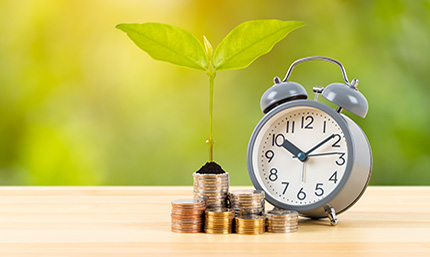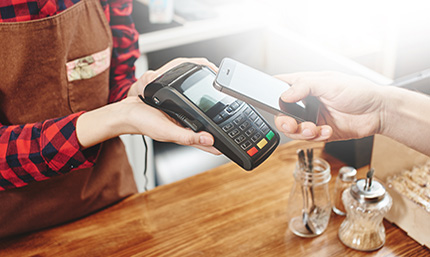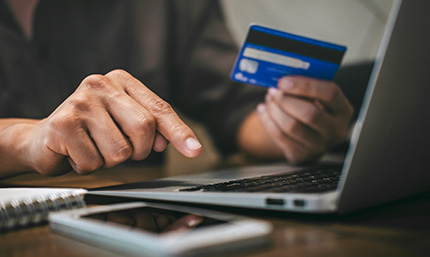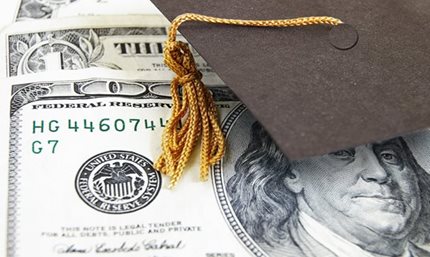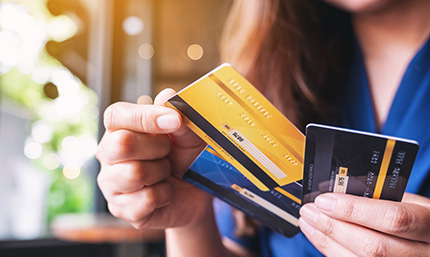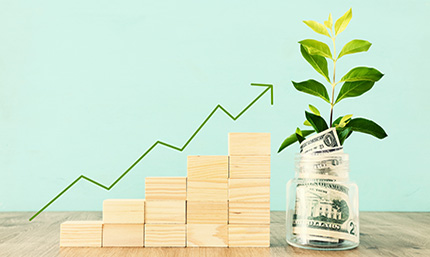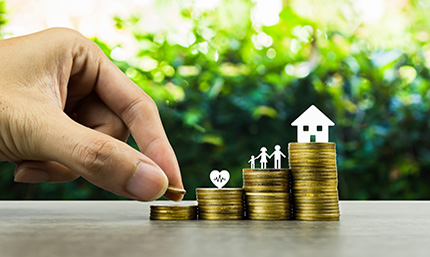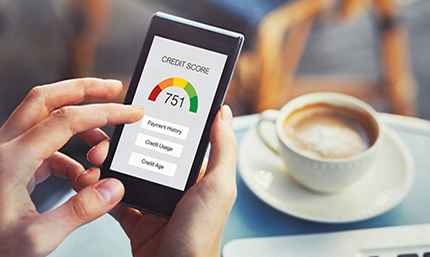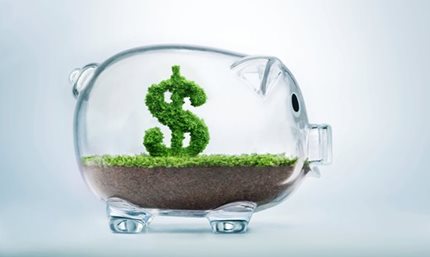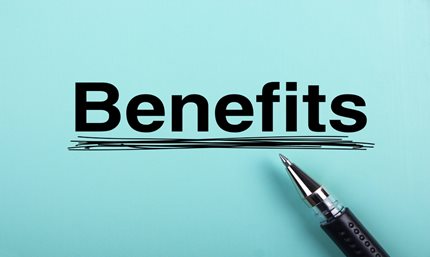News & Tips
The Ultimate Guide on High-Yield Savings Accounts & Saving Money

By regularly depositing your hard-earned money into a high-yield savings account, you could be on a faster path to achieving your dreams. A high-yield savings account is a type of savings account where the interest rate typically yields more than the national average, but exact definitions vary. Space Coast Credit Union (SCCU) is a not-for-profit financial institution, and we’re all about helping our members save more money with great rates and low fees. In this article, we’ll give you the 4-1-1 on growing your money even while you sleep.
What is the Highest Paying High-Yield Savings Account?
At SCCU, our highest paying high-yield savings account is SCCU Saving Cents, which is a round-up savings program where debit card transactions are rounded up to the nearest dollar and deposited into participating checking accounts. So, you save by spending! See interest rates for all other accounts at SCCU here.
| Balance | Dividend Rate | APY^ |
|---|---|---|
| $0 - $25,000 | 2.25% | 2.27% |
| $25,000.01 and over | 1.25% | 1.26% |
^APY = Annual Percentage Yield.
No minimum average daily balance required. Rates are accurate as of the effective date displayed, and they are subject to change. The APY (Annual Percentage Yield) is a percentage rate that reflects the total amount of interest paid on the account, based on the interest rate and the frequency of compounding for a 365-day period. Fees may reduce earnings on the account.
How Do High-Yield Savings Accounts Work?
The money you deposit in a high-yield savings account earns interest based on the account’s annual percentage yield (APY) and the compounding period (daily, monthly, quarterly, yearly, etc.). At credit unions, the interest you earn in a savings account is in the form of dividends. Keep in mind that since interest rates fluctuate, so can your deposits’ interest earnings.
Let’s take a look at an example. Let’s say you deposit $500 every month into a high-yield savings account at 2.02% APY^ for 60 months:
- Initial deposit: $0
- APY^: 2.02%
- Months: 60
- Compounding: Yearly
- Monthly deposits: $500
- Ending balance: $31,236.73
If you weren’t earning interest, your ending balance would be $30,000. So, essentially, you’ve yielded more than $1,000 by letting the account do the work for you!
The more money you deposit into the account, and the longer you keep it there, the more money you’ll earn on interest.
How Much Money Should I Have in My Savings Account?
As a rule of thumb, you should have at least three to six months’ worth of living expenses in a savings account as your emergency fund—preferably in a high-yield savings account that doesn’t charge monthly maintenance fees. You could also earn a high interest rate on your savings in a certificate of deposit (CD) or in an interest checking account. We’ll touch more on those later.
How Much Money Should I Save Every Month?
If you’d like a simple guideline to help you balance your bills and savings each month, following the 50/30/20 will help you get started. This money management strategy states: allocate 50% of your income to your “must-haves,” 30% to your “wants,” and 20% to your savings.
- 50%: Your “must-haves” would be your necessities, such as your housing, utilities, loan payments, groceries, insurance, etc.
- 30%: Your “wants” would cover the nonessential expenses, such as for restaurants, vacations, and entertainment.
- 20%: Your savings would be for your emergency fund, retirement, down payments, etc.
Keep in mind this guideline doesn’t always work for everyone, and it’s more of a helpful framework than a hard rule. Learn more about how to budget your funds.
Pros and Cons of High-Yield Savings Accounts
First, let’s take a look at the benefits of high-yield savings accounts:
- Saving more for big purchases: If you’re saving up for a down payment on a car or a home, for college tuition, a vacation, an engagement ring, a wedding, a birth, etc., a high-yield savings account will allow you to earn extra money to achieve those dreams. If saving for your goal will take more than five years, be sure to look into opening a CD or other investment opportunities.
- Earning money at a lower risk: Your money in a savings account will grow by earning dividends, and compared to stocks and mutual funds where you run the risk of volatility, your money will be safer in an FDIC- or NCUA-insured savings account (more on this later).
- Accessing emergency funds more easily: By squirreling away your emergency funds in a high-yield savings account rather than tying it up in stocks, mutual funds, CDs, or IRAs, you’ll have easier access to the funds while your money continues to grow.
Now, let’s take a look at the potential cons of high-yield savings accounts:
- Having fewer transactions a month: Savings accounts can have a limit on the number of transactions you can make each month—usually up to 6.
- Having to maintain a minimum balance at all times: To open this type of account, you may have to make a larger deposit and maintain a minimum balance at all times to avoid additional fees.
- May not be earning enough compared to inflation: Financial institutions may not raise the rates on these types of savings accounts at a pace that keeps up with inflation.
As you can see, the potential cons pale in comparison to the potential payoffs you’ll get by saving your money in a high-interest savings account!
What to Look for in a High-Yield Savings Account
The interest rate for a high-yield savings account isn’t the only factor to consider. If a savings account piles on fees and service charges, then you could be losing more money than you bargained for. Be sure to keep your eye out for the following features when shopping around:
- Insurance: First things first—make sure the account is FDIC- or NCUA-insured. At SCCU, our accounts are federally insured by the National Credit Union Administration (NCUA), an independent federal agency, which insures up to $250,000 per account owner, per institution, per ownership type (account type). Learn more here.
- Interest rates: The next item on the agenda is to compare APYs of savings accounts at various financial institutions so that you can maximize your earnings!
- Minimum deposit: This is the minimum monetary amount you need to open your savings account.
- Minimum daily balance: This is the minimum amount you must have in your savings account to avoid fees or other penalties.
- Fees: Check to see if the savings account has a monthly service fee—none of our savings accounts do at SCCU.
- Transaction limits: Savings accounts don’t operate the same way as checking accounts. Be sure to check how many times per month you can conduct transactions with your savings account.
- Account access features: At SCCU, we offer free Online & Mobile Banking (data carrier rates may apply), fee-free access to over 20,000 ATMs nationwide, free mobile deposits, and free eStatements.
Review all the terms and conditions of any savings account before checking “I accept.” A Team Member at SCCU will be more than happy to answer any additional questions.
Best High-Yield Savings Accounts
Let’s take a look at all of SCCU’s high-yield savings accounts:
- SCCU Saving Cents: The latest addition to our financial suite! Once you’ve linked your SCCU Saving Cents account to an SCCU checking account, we round up every debit card to the nearest dollar and deposit that change into your Saving Cents account. See an example of how this works with our round-up savings calculator. It’s a simple and easy way to save while you spend. Cha-ching!
- Money Market: This is a type of high-earning savings account where you earn more based on the balance you have in the account without dealing with a monthly service fee. You’ll have plenty of flexibility to deposit and withdraw money as you’d like — within certain limits for the minimum daily balance and transaction limit.
More High-Interest Savings Accounts
While these aren’t traditional savings accounts, the following options below will help you grow your savings even more. Bear in mind some conditions apply, but they’re both safe ways to invest!
- Certificates of Deposit (CDs): A certificate of deposit (CD) is a safe and smart savings strategy where you deposit money into an account that earns a high interest. After a set period, it’ll reach “maturation,” where you’ll be able to withdraw the money and its earnings. You can open an account with as little as $5006. Longer CD terms usually have higher interest rates, but you won’t be able to access that money without facing a penalty. Learn more about the difference between a CD and a Money Market account.
- Individual Retirement Accounts (IRAs): A savvy way to start building your nest egg for retirement is by opening an IRA or an IRA CD as soon as possible. You can open an IRA with a deposit as little as $100 and an IRA CD with a $500 deposit. To open an IRA or an IRA CD, give us a call or visit a branch near you.
Both options come with tax advantages (please consult a tax advisor about deductibles) and earn more with competitive rates.
Best High-Yield Checking Accounts
The beauty of checking accounts? They allow you to make more transactions than a savings account every month. Check out these high-yield checking accounts:
- Health Savings Checking: If the thought of unexpected healthcare expenses make you shudder on your high-deductible plan, then a Health Saving Checking account will help you stress less. Plus, you won’t lose the funds if you don’t use them within the year.
- Interest Checking: Enjoy access to your funds while earning interest too. Keep in mind this account requires a minimum daily balance.
See all of the checking accounts we offer at SCCU here.
Other Savings Accounts at SCCU
Wait, there’s more! We offer additional savings accounts at SCCU to help you save for specific purposes, for the youth, and for general purposes, each with unique benefits:
- Regular Savings: A $5 deposit into this account establishes your membership at SCCU, but you don’t have to stop there! You’ll keep earning dividends on your deposits in this account.
- My Way Savings: Whether you’re saving for a wedding, a birth, or other special occasion while looking to earn more, a My Way Savings makes that mission possible. Plus, you can open up to 10 My Way accounts with no minimum deposits required.
- Youth Savings: Start teaching the kiddos how to start building healthy savings habits and a strong financial foundation with a Youth Savings account. Plus, they can earn interest on this account just like adults too.
- Christmas Club: You’ll no longer dread the holiday season for gift-giving with a Christmas Club account. With this high-yield savings program, you’ll be able to make deposits all year with a high interest rate. Plus, we set it up to automatically transfer your Christmas Club funds to your savings account on October 31.
Don’t Sleep On Your Savings Account
While it’s nice to know that you’re earning on your savings even while you’re sleeping, you don’t want your account to go into a coma, so to speak. According to Florida law, banks must consider your account dormant after five years of inactivity.
How would my savings account become dormant?
If your account were to become dormant due to a low balance or lack of deposits for a long time, then the financial institution will issue you a notification on how to re-activate your account. But, if your correct home address isn’t on file, then you may miss the notifications.
What happens to my savings account if it becomes dormant?
The cost of issuing these notifications, records, and statements quickly add up for financial institutions. To reduce and avoid future costs, they can legally close these accounts and transfer the funds to the state treasury department through a process known as escheatment.
State treasury departments hold those funds, along with unclaimed tax refunds, payroll checks, and other “orphaned” assets in an unclaimed property fund. Most states hold hundreds of millions of dollars in these funds.
How would I get access to my dormant savings account?
This money isn’t lost, but it is difficult to access. To reclaim those funds, you’ll be required to complete a variety of forms and wait several weeks while your request is processed. It’s far more complicated than stopping by your credit union or ATM!
How to Keep Your Savings Account Active:
To avoid and risk having to fill out forms and wait several weeks to get access to that account again, here’s what to do:
- Keep track of your accounts: It should go without saying that you want to know where all your money is at any given time. Fortunately, in an era of modern technology, that’s never been easier. With Online & Mobile Banking at SCCU, you can monitor all of your accounts in one place.
- Automate your savings: An account can’t become dormant if transactions are happening with the account on a regular basis. The easiest way to make it happen is to set up automatic transfers between your primary account and your savings. You could start as small as a few dollars. This form of automatic savings will keep your account active and your savings full. That’s a win-win situation!
- Clean up and roll over old accounts: If you’re the kind of person who creates different accounts for different savings goals, you might accumulate a dozen different accounts over time. You might end up with a hundred dollars or more scattered through multiple accounts. Each of those accounts is at risk of going dormant! Putting that money to any purpose is better than letting it sit in a dormant account and risk being lost to escheatment or service fees.
Saving Money Tips
The best way to find out where you can cut costs and save more is by tracking your income and expenses—simply with this budgeting worksheet(PDF), an app, or an Excel spreadsheet. Here are some additional tips to save more money:
- Refinancing loans: Lowering your auto or home loan’s interest rate by refinancing with SCCU may get you on a path to saving more money.
- Consolidating debt: Sometimes too many loan payments and lines of credit get overwhelming with monthly costs, varying due dates, and high interest rates. Debt consolidation may be able to help you pay off high-interest debt faster with a lower rate, saving you more in the long run. Learn how to consolidate debt (and see if it’s right for you) here.
- Start earning equity with homeownership: By renting, you’re not earning money on equity, and you’re running the risk of your rent going up every time your lease ends. We offer home loans that can help you buy your first home, such as No Down Payment loans, FHA loans, and No Closing Costs loans. See all home loans at SCCU here.
- Low-rate auto loans: With a low-rate auto loan at SCCU, you may be able to save more every month with a lower car payment.
- Low variable rate credit cards: If you’re looking to build or improve your credit, which can ultimately help you get lower rates on loans and lower insurance premiums, a Visa® Secured at SCCU helps achieve that goal. We also offer Visa® Student for those who are ages 13-17 to help build a credit foundation. Plus, with our Visa® Low Rate, you could save more on interest every month if you carry a balance.
- Rewards credit cards: Would you like to save more money even when you shop? With our Visa® Platinum, you can earn up to 2% cash back33. You can also earn points for grocery and entertainment purchases, restaurant purchases, and more with an SCCU Visa Signature®43 and redeem those points for a variety of exclusive products or experiences.
- Free Checking: Say “sayonara” to fees with our totally Free Checking account. Plus, you can get your paycheck up to two days earlier for free42, and you’ll have access to over 20,000 fee-free ATMs nationwide.
- Exclusive rates for community heroes: Educators, emergency responders, medical professionals, law enforcement, Department of Defense/Government contractors, and military members can also qualify for lower rates for home and auto loans too.
- Make your own lunches: Did you know you could potentially save more than $2,500 by not ordering lunch at restaurants every day? Bring your own lunch to the office or make it at home—a simple soup, salad, or sandwich goes a long way with savings! Better yet, have a little picnic at a park nearby too. Plus, you can earn 3 points for every $1 spent at grocery stores with an SCCU Visa Signature43, and those points add up fast for exclusive rewards!
See our top 10 ten creative ways to save money here. If you’re a college student looking to save more, check out this article too. We also offer a bevy of financial wellness articles, financial calculators, and fraud prevention resources to help you make more informed decisions and keep your accounts safe.
Save More with SCCU | How to Apply
If you live or work in any of these counties, you can become a member of SCCU with a $5 Share Savings deposit. You can apply online for a savings or checking account or a CD in just a few minutes by providing us with some information about yourself, a minimum deposit in some cases, and a picture of your ID.
If you have any additional questions, feel free to fill out this form, or give us a call for your respective area:
- Brevard: 321-752-2222
- Broward: 954-704-5000
- Miami-Dade: 305-882-5000
- All Other Areas: 800-447-7228
We work hard to provide a great experience for all of our members by always striving to deliver our brand promise: Honest People. Trusted Products. Time Valued.


